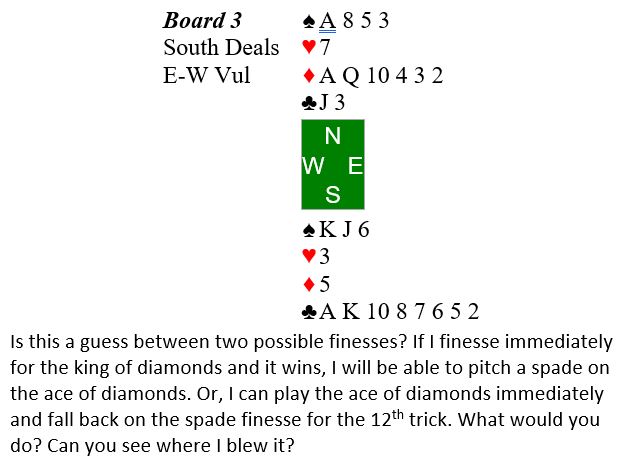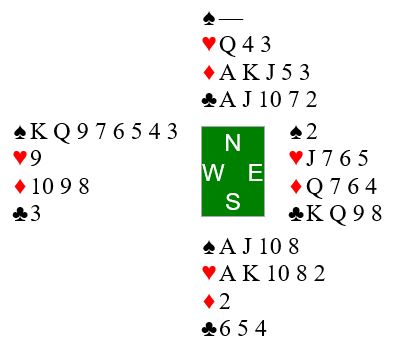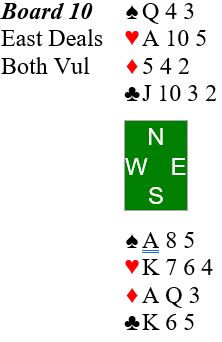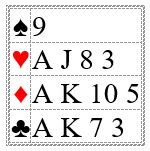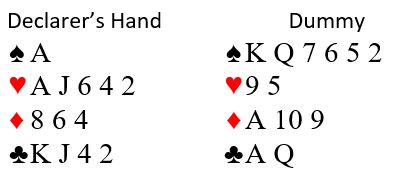ACBL links to some helpful syndicated bridge columns here. Although not appearing at the link, this is a fine example of a declarer play problem from Bob Jones (“First Things First”) that ran in our local newspaper April 28. Jones sets up the problem for rubber bridge or IMP:s scoring, meaning your objective is to make the contract (overtrick is not important). How would you play to give yourself the best chance of making 6NT? Lead was the jack of diamonds. Here is the bidding, and what you see on opening lead:
It’s usually best in a NT contract to start by counting your winners. Here you have 11 easy winners: 4 spades, 1 heart, 3 diamonds, and 3 clubs. Where is your 12th winner going to come from?
Hearts offer one possibility. If East holds the king of hearts you can finesse it for the 12th trick by leading low toward the queen. That’s a 50 percent chance.
Clubs offer a better possiblility. You are missing six clubs, including the jack. Thanks to Karen Walker here are the possible breaks of the club suit along with their odds:
Let’s use Karen’s table to assess the likelihood of making your contract if you start clubs from the top, hoping to drop the jack or otherwise develop a 4th trick in clubs. Here is a summary of the possible breaks and associated percentages for developing at least a 4th trick on clubs:
- For the 3-3 break you will drop the jack for sure with probability 36%.
- For the 4-2 break you will drop the jack 16% (one-third of 48%) of the time or set up a certain 4th club trick the other 32% of the time.
- For the 5-1 break you will drop the singleton jack 3% of the time (one-sixth of 15% rounded to nearest percentage).
- For the 6-0 break you will discover immediately if finessing the 10 will work. If East is void, then you will have to try finessing East for the heart king.
- Bottom line is that your chances look excellent (87%) to make.
BTW, basic knowledge of percentage suit splits for common declarer problems will aid your decision making at the table. Missing 6 cards, 5 cards, 4 cards or 3 cards are common.
What if both opponents follow low when you cash the king of clubs? Does that change anything? Yes, and that’s the main point of the lesson. Your only worry in that case is that West’s low club might have been a singleton. On the oft chance it was, finessing the 10 will get you your 12th trick. On the more likely chance it wasn’t, you can set up a certain 4th trick in clubs even if the finesse loses.
Here was the entire deal:

